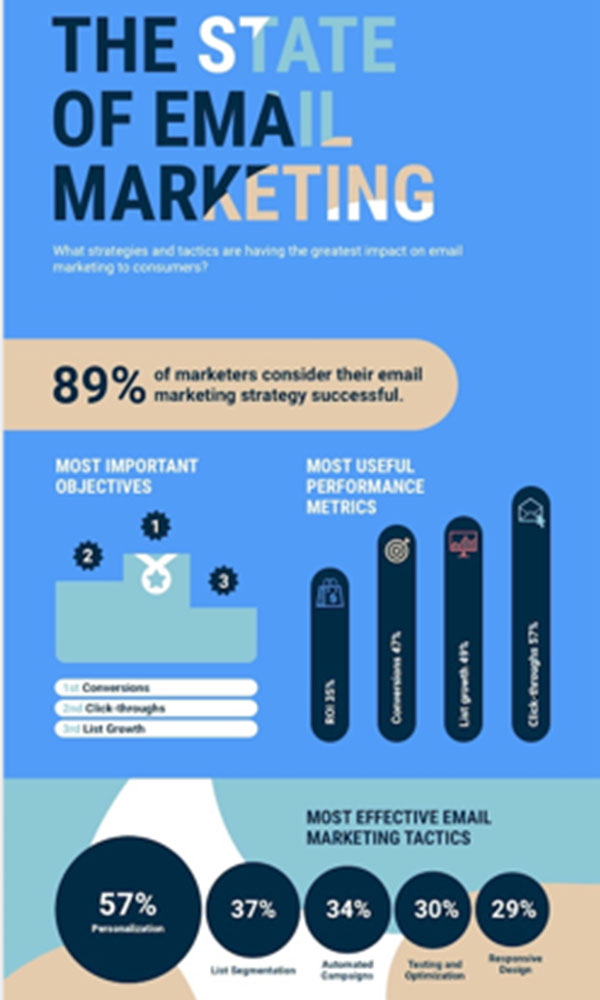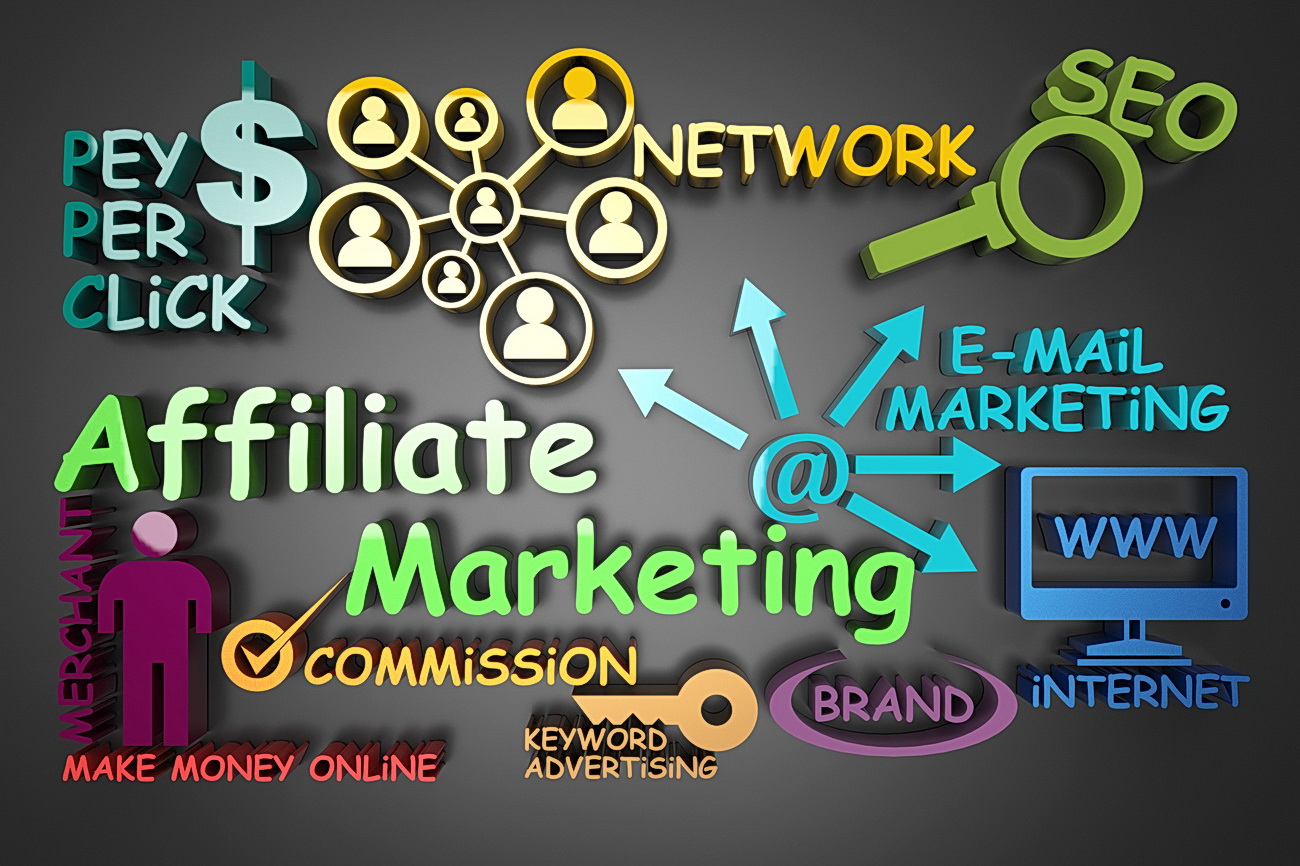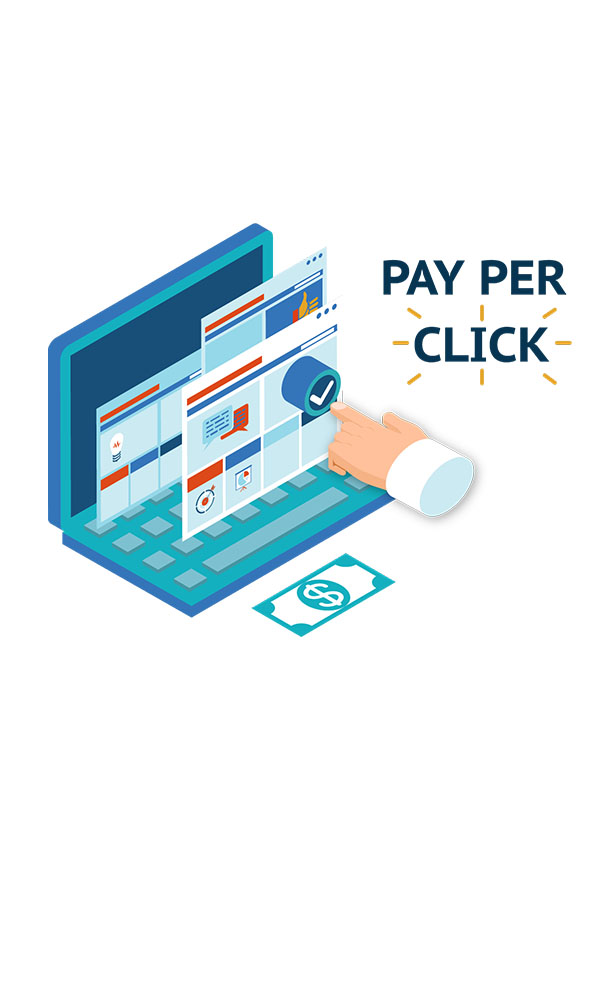Email Marketing
Email marketing is a digital marketing strategy based on sending emails and developing relationships with prospects and customers. An effective email marketing strategy convert prospects into customers, and turn first time buyers into recurring customers. One advantage of email marketing is that you can automate the entire process. Email marketing is far from dying and brings with it advantages and potential to be explored by companies. With good practice and a well-planned strategy, the results will be out there.
Email marketing has many advantages associated with it. When used properly, it can leverage sales, generate new customers and help in their retention. While social networks first need to engage people so that they can become customers.
Through email marketing you can opt for various communication strategies, they are the following:
- Commercial: These strategies are considered to be the most traditional and are intended to increase impulsive behaviour when announcing promotions or a new product.
- Loyalty: In order to retain customers, this type of campaign aims to promote their relationship with the brand or company, in order to generate more sales.
- Informational: These campaigns are intended mainly to inform clients, for example about future events or to get feedback on a particular service or product.
- Location: This is a strategy used to inform people about the location of the physical store, so that they can go in it and become customers.
These strategies associated with relevant content can achieve good results for companies. Unlike to what happens in social media, in email marketing there is a base of subscribers who are already interested in the subjects sent by companies. They can choose whether or not to open and read the emails.

Content Marketing
Content marketing is good for your bottom line and your customers
Specifically, there are three key reasons and benefits for enterprises that use content marketing:
- Increased sales
- Cost savings
- Better customers who have more loyalty
Instead of pitching your products or services, you are providing truly relevant and useful content to your prospects and customers to help them solve their issues
Content is the present and future of marketing
Go back and read the content marketing definition one more time, but this time remove the relevant and valuable. That’s the difference between content marketing and the other informational garbage you get from companies trying to sell you “stuff.” Companies send us information all the time – it’s just that most of the time it’s not very relevant or valuable (can you say spam?). That’s what makes content marketing so intriguing in today’s environment of thousands of marketing messages per person per day.
Marketing is impossible without great content
Regardless of what type of marketing tactics you use, content marketing should be part of your process, not something separate. Quality content is part of all forms of marketing:
- Social media marketing: Content marketing strategy comes before your social media strategy.
- SEO: Search engines reward businesses that publish quality, consistent content.
- PR: Successful PR strategies address issues readers care about, not their business.
- PPC: For PPC to work, you need great content behind it.
- Inbound marketing: Content is key to driving inbound traffic and leads.
- Content strategy: Content strategy is part of most content marketing strategies.
To be effective at content marketing, it is essential to have a documented content marketing strategy and we emphasize more on creativity of content to deliver desired results.
Affiliate Marketing
Affiliate marketing certainly has the potential to drive sales and generate significant revenue. More than that, it is a highly cost-effective lead generation tactic where you pay solely for performance.
That’s why more brands are leveraging this performance-based marketing tactic more often.
Google Trends data also suggests that the number of searches for “affiliate marketing” has grown significantly over the past five years.
These searches likely come from both brands and affiliates as affiliate marketing can help them both grow.
If you are still confused about whether or not to use affiliate marketing, check out these interesting statistics:
- 81% of brands use affiliate marketing to capture customers’ attention, engage with existing customers, and generate more sales.
- Affiliate marketing spend in the US is expected to rise to over $6.82 billion by 2020 at a compound annual growth rate of 10%.
- 79% of marketers leverage affiliate marketing to drive conversions and increase purchases. 83% of them use it to increase brand awareness, and 79% of them use it to engage existing customers.

Social Media Marketing
Social media marketing is when a business uses social media platforms to connect with their audience and promote their products, services, or cause.
Social media is really just people talking to people. But because there’s only one of you, and probably thousands of people you would like to reach, social media marketing can help you project your message to the world.
Some of the main benefits that come from promoting your brand on social media include engaging with your audience, increasing traffic to your website, collecting customer feedback and testimonials, building awareness around your business and the ability to target specific prospect demographics.
The Advantages of Social Media Marketing
- Creating a public social media page for your online business can attract many viewers and create brand awareness. A customer can notify their friends or family about your brand.
- You can directly send messages and links to other social media users and increase traffic on your site in this way.
- You can build long-distance relationships with customers and other talented digital marketers out there. It is a great place to build on your success network and your customers.
- Increases your website’s visibility.
- Give exceptional customer service by talking one-on-one with your customers on social media. This will help you build a loyal customer base.
Pay Per Click Advertising
Pay per click advertising (PPC) is one of the most revolutionary methods of online marketing available. Essentially, it is an instant ad model designed to attract traffic to your site. For each time a user clicks on your ad, you pay a fee to the search engine. The exact amount you pay depends on a variety of factors including landing page quality score, the competitiveness of targeted keywords and so on.
It has been noted that cost per click advertising is actually extremely cost effective. Unlike traditional online advertising, where you pay every time your ad is shown, you only pay when users click on your advert. A well-managed Pay Per Click campaign, like those that we offer at Promote, will garner you a significant return on investment plus instant traffic.
That's another great advantage of PPC; the level of traffic increases. Unlike search engine optimisation, which can take a while to see results, pay per click can see your site's traffic go up as soon as the campaign is launched. What's more, all of this is measurable too through conversion tracking, monitoring click through rates (CTR) and other stats so you can see the effectiveness of your campaign.

